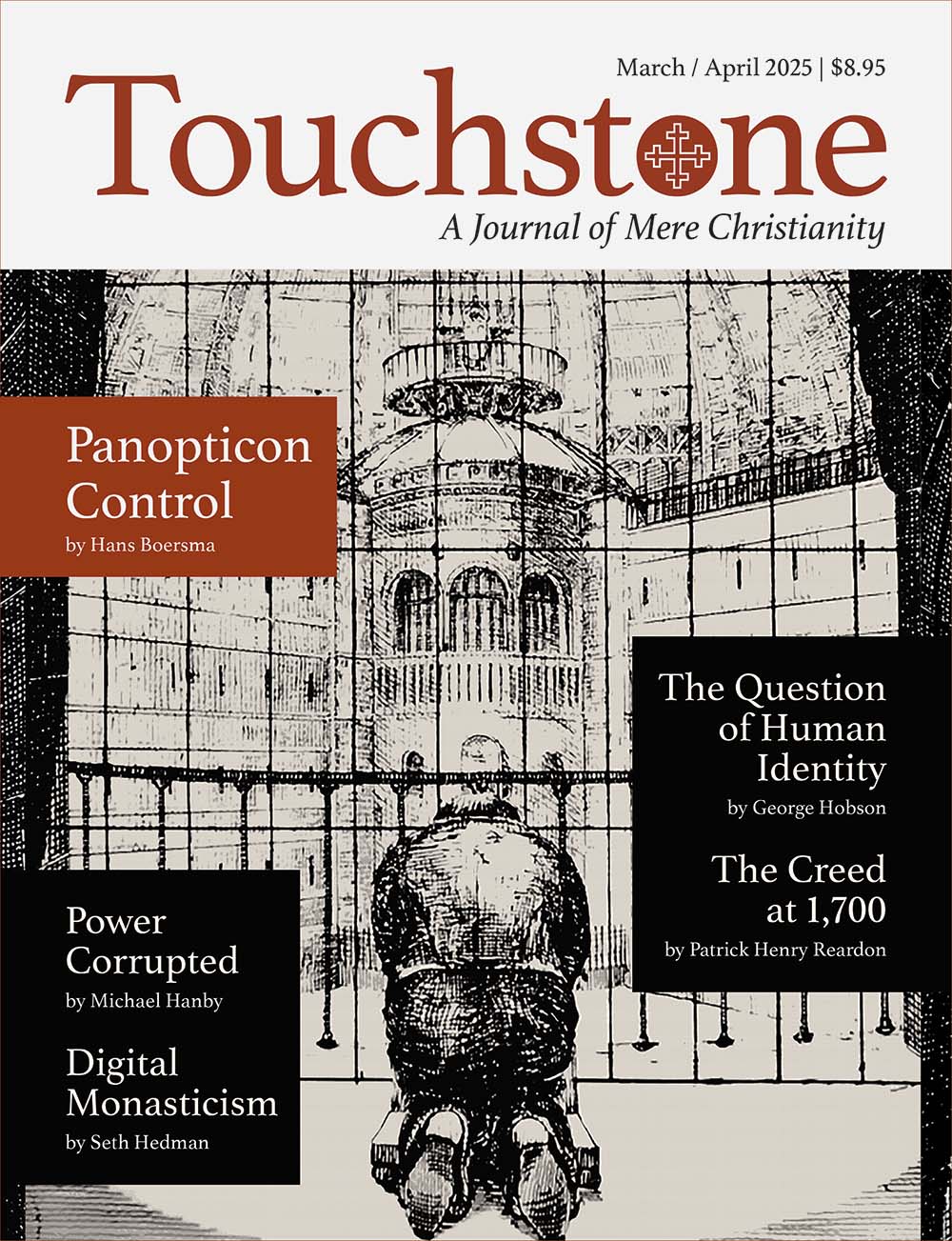Panopticon Control
The great seventh-century theologian Maximus the Confessor famously insisted that the world is the embodiment of God. I agree, though I’d like to replace the noun embodiment with the verb embodying. Verbs are action words, and God is constantly embodying himself, continuously making himself present in a created mode. Embodying is what God does all the time.
I have a particular liking for the verbal form because it makes clear that the created world—including us human beings—exists in a dependent mode, ever relying upon God’s creative and providential activity. God’s merciful gaze brings the world into being, and should he remove his watchful eye for just a moment, creation would return to nothingness. Apart from God, nihil est—nothing exists—without God, and apart from him, we can do nothing (John 15:5).
To be sure, the metaphor of God casting his eye upon the world has its drawbacks. It may seem to imply distance between God and the world—the very thing we try to avoid by talking of God embodying himself. Vision, for us moderns, implies a gap between subject and object. But it wasn’t always so. For the ancient world, and for much of the Christian tradition, vision implied unity. It was thought that a subject unites himself with an object by means of vision. Vision allows the object’s nature or form to enter the subject. As a result, when I merely look at my wife, she already becomes part of me. The ancients recognized, better than we do, both the beauty of a relational, ocular world and the dangers of looking at the world in a haphazard or unseemly manner. To them, God gazing at the world implied that the world is part of him.
THIS ARTICLE ONLY AVAILABLE TO SUBSCRIBERS.
FOR QUICK ACCESS:
Hans Boersma is the Saint Benedict Servants of Christ Professor in Ascetical Theology at Nashotah House Theological Seminary.
subscription options
Order
Print/Online Subscription

Get six issues (one year) of Touchstone PLUS full online access including pdf downloads for only $39.95. That's only $3.34 per month!
Order
Online Only
Subscription

Get a one-year full-access subscription to the Touchstone online archives for only $19.95. That's only $1.66 per month!
bulk subscriptions
Order Touchstone subscriptions in bulk and save $10 per sub! Each subscription includes 6 issues of Touchstone plus full online access to touchstonemag.com—including archives, videos, and pdf downloads of recent issues for only $29.95 each! Great for churches or study groups.
Transactions will be processed on a secure server.
more on culture from the online archives

33.1—January/February 2020
Do You Know Your Child’s Doctor?
The Politicization of Pediatrics in America by Alexander F. C. Webster
more from the online archives
calling all readers
Please Donate
"There are magazines worth reading but few worth saving . . . Touchstone is just such a magazine."
—Alice von Hildebrand
"Here we do not concede one square millimeter of territory to falsehood, folly, contemporary sentimentality, or fashion. We speak the truth, and let God be our judge. . . . Touchstone is the one committedly Christian conservative journal."
—Anthony Esolen, Touchstone senior editor












